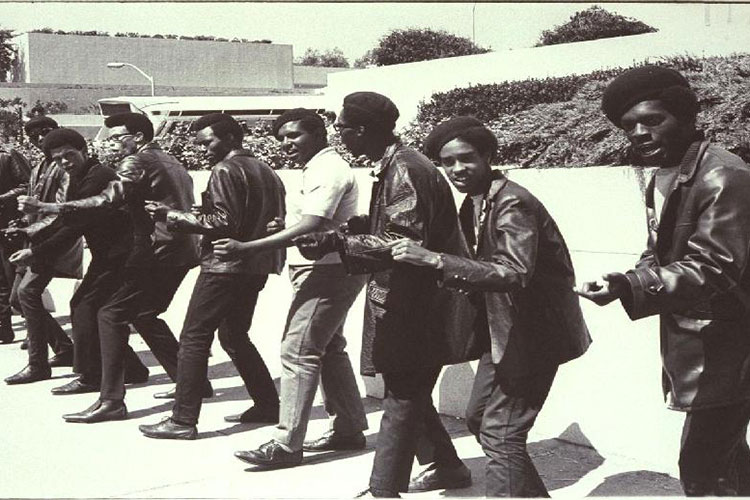Lowell Bergman looks back at covering the Black Panthers

February 19, 2016

Black Panthers outside the trial of Huey Newton in 1968 (Bancroft Library image by Garney Peterson)
Fifty years after the Black Panther Party’s founding, the ideals that sparked the controversial black power organization resonate again with the Black Lives Matter movement. And the Panthers’ central ideas — equality for African Americans and, especially, outrage over police brutality against blacks — are mainstream.
But in 1966, when the Panthers were founded in Oakland, and in the subsequent decade of their rise and disintegration, their revolutionary fervor and embrace of guns generated fear in much of mainstream America — and brought the police powers of the U.S. government, especially the FBI, down hard.

Lowell Bergman
There to cover their rise and fall was Lowell Bergman, then a young reporter who covered the Panthers’ — and especially the FBI’s efforts to bring them down — for Rolling Stone and now director of the Investigative Reporting Program at UC Berkeley’s Graduate School of Journalism.
“You could tell they were changing the game, given the amount of attention they were getting from authorities,” Bergman said in an interview aired on KQED radio this week. “These people were interested in political change, and that was really threatening.”
The Bergman interview was part of a flurry of Panther media inspired by the new PBS documentary The Black Panthers: Vanguard of the Revolution, which ran this week on KQED-TV in the Bay Area.
Read the Bergman interview and listen to the podcast on the KQED website.